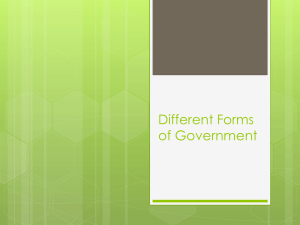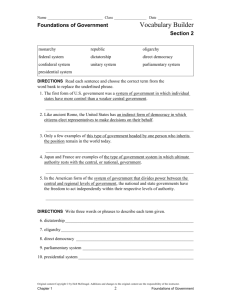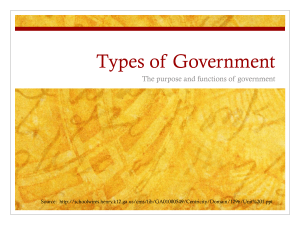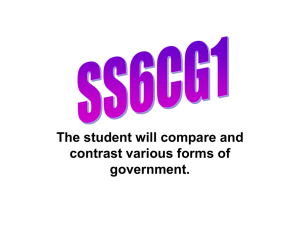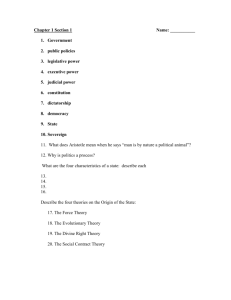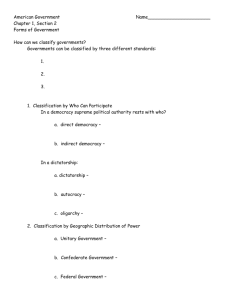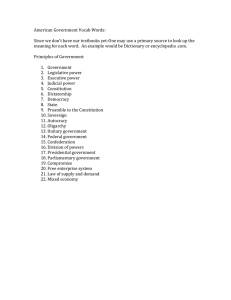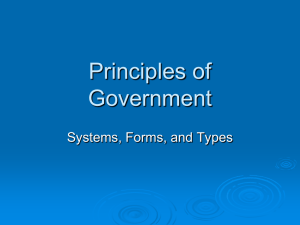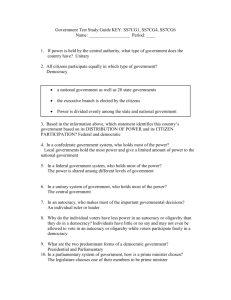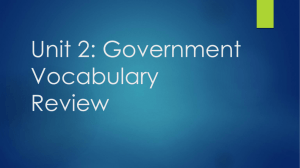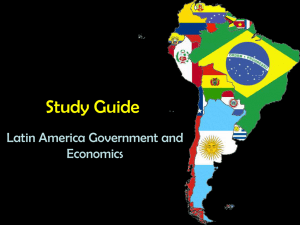Good Morning and Welcome! - Mr. Matt Yawn's Sixth Grade Gifted
advertisement
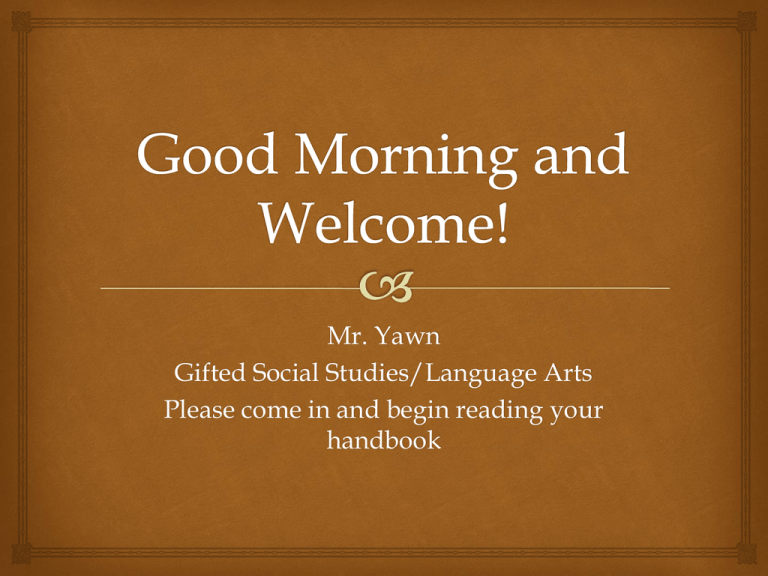
Mr. Yawn Gifted Social Studies/Language Arts Please come in and begin reading your handbook Grading Policy: • Tests • Quizzes 20% • Homework • Classwork 35% 35% 10% Materials: • 3 ring binder • Composition book • Color pencils Other: • We will be using technology daily! • All classes will employ differentiated instruction. Concepts or Themes Used in Global Studies •Conflict and Change •Culture •Governance •Human Environment Interaction •Movement/Migration •Location •Production, distribution, and consumption •Time, change and continuity Take a moment and list all the terms you remember from last year concerning government. Why do you think that government is an important concept when studying other nations? Types of citizen participation - Autocratic (autocracy) - Dictatorships (Cuba) - Oligarchic (oligarchy) - Ancient Greece, Communist China - Democratic (democracy) - The US, the UK, Canada- all countries which have a presidential or parliamentary type of government How power is distributed - Federal - The US, Brazil, Canada, Germany, India - Confederation- The Confederate States of America (Civil War), The European Union today - Unitary - UK, France, Israel Use Government PPT & note-taking guide found in Unit 1 folder to review governance terms Unitary Governments Central government possesses most of the decision-making power and authority Operates all levels of government in the country Assigns power to state & local government Examples: _______________________________________ _____ Confederations Some countries agree that they would be better able to solve problems or provide help if they worked together They might sign a treaty or a constitution under which the countries agree to defend each other, trade with each other, use a common currency, etc. Membership is usually voluntary & a country can decide to leave at any time Confederations generally have a weak central government Examples: Federal Governments In a federal form of government, power is divided between a central government & regional authorities, such as states A document (such as a constitution) may describe the rights, responsibilities, and duties of the central government & the states Examples: ________________________________________ ______ Autocracy (Autocratic) • One person possesses unlimited power • Under autocratic systems, one leader holds all the power • Example: Hitler’s Germany Oligarchy (Oligarchic) • Government by the few • Under an oligarchic system, only the elite (small powerful group) hold the power • Examples: China, Ancient Greece Democracy (Democratic) / 2 Types: Presidential & Parliamentary • Government by the people • Under a democracy, the people hold the power Examples: United States, Australia, Canada • There are 2 types of democracies: Presidential Democracy Democracy • In a presidential system, there is a separation of powers: the people elect the legislature and executive leader independently. • Made up of 3 branches: • Executive – President (head of state) • Legislative – Congress • Judicial – Supreme Court Parliamentary • In a parliamentary system, there is a fusion of powers: the people elect the legislature, but the legislature selects the executive leader. • Made up of 3 branches: • Executive – Prime Minister (head of state -- elected by members of Parliament) • Legislative – Parliament • Judicial – Court system For each country, make sure your group addresses the following questions: • Type of government and citizen participation • What is the predominate ethnicity and religion in this country? What are the minority peoples/beliefs? • Are those minority ethnicities and adherents to other religious beliefs equal in rights? • What is the law based upon (constitution, religious books, etc.) • What are the economies like in these countries? • Do you think it is like the U.S. government in ANY way or different? • Miscellaneous facts about these countries pertaining to culture, entertainment, music, poetry, etc.
